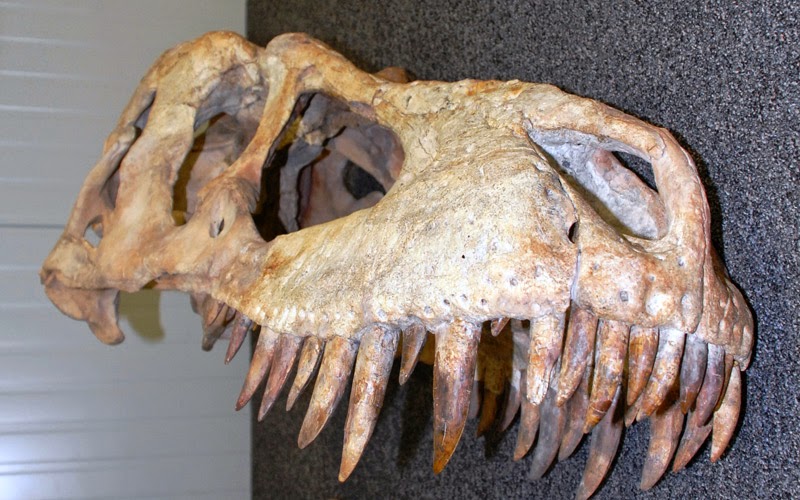Calling Eric Prokopi “a unique and important cooperating witness in the annals of national resource crime,” federal prosecutors urged leniency for the accused dinosaur smuggler who pleaded guilty in 2012 for his involvement in illegally importing dinosaur bones into the United States, which included a Tyrannosaurus Bataar skeleton looted from Mongolia and auctioned for more than $1 million.
New York federal judge Alvin K. Hellerstein heeded the request and yesterday sentenced Prokopi to three months’ custody; one year and three months supervised release, of which the first three months shall be community confinement; $300 special assessment; and community service during the year of supervised released.
Prokopi’s sentence followed his earlier conviction to an information charging conspiracy to smuggle goods into the United States, conspiracy to commit bribery using federal funds, entry of goods by means of false statements, and transportation of stolen goods.
In a sentencing memorandum filed on Monday, prosecutors representing the U.S. Attorney’s Office for the Southern District of New York wrote that “Prokopi provided information that was and remains crucial in law enforcement’s revitalized efforts to police what had essentially become a black market in stolen national treasures that operated in plain sight.”
Prosecutors welcomed Prokopi’s cooperation after the defendant’s lawyers in the forfeiture case—widely known for their ancient coin dealer and collector advocacy—vigorously contended that the Bataar skeleton was not stolen.
Demonstrating that the prosecution of cultural property crimes potentially offers law enforcement opportunities to learn about criminal techniques and to develop or confirm investigative leads—opportunites that may not be presented by the mere seizure and repatriation of contraband cultural heritage—government attorneys highlighted in their sentencing memorandum the advantages gained by Prokopi’s cooperation with federal investigators:
Prokopi met with agents and representatives of our Office and the Department of Homeland Security, Homeland Security Investigations numerous times, spent many hours giving information about the fossil trade not only to this office, but to three other offices as they developed their understanding of the fossil trade. Prokopi developed their knowledge of the players in the trade of not only dinosaur fossils, but other natural treasures. Since Prokopi’s cooperation, other fossils have been seized and individuals arrested. Although these owe to leads developed separately and in some cases before Prokopi’s cooperation, it is safe to say that there is not an active fossil investigation that has not been informed, to some degree, by information given by Prokopi in this case.
Prokopi’s lawyer argued for an entirely non-custodial sentence in light of the defendant’s cooperation, his background, the lack of jail sentences handed down to similarly situated defendants, and his acceptance of responsibility. A May 23 sentencing memorandum filed by defense counsel claimed that “Prokopi was led to believe that as long as the proper Mongoliangovernment permits were obtained, it would be lawful for a privateindividual to purchaseMongolian fossils for export.” The defense attorney argued more fully that:
Prokopi went awry, however,when, after having learned that the containers to be shipped from Mongolialacked what he believed to be the necessary export permits, he nevertheless facilitated their entry into the UnitedStates by makingfalse declarations on customs forms.He does not seek in any way to excuseor minimize this offense conduct. Rather, the distinction between transporting fossilsout of Mongolia in contravention of that nation’s laws and procuring stolen fossils from within Mongolia is underscored simply to dispel the notion of Prokopi as a black market ringleader who surreptitiously removedbones from the Gobi Desertin the dead of night.This distinction was all but lost in the mediafrenzy that followedProkopi’s arrest on October 17, 2012.
The court, nevertheless, felt that some incarceration was needed in the case and imposed the three month prison term.
Fossils recovered by authorities from Prokopi are expected to be repatriated to Mongolia just as the Bataar skeleton was returned to that nation last year.
For more complete background about the criminal case of U.S. v. Prokopi and the forfeiture case of U.S. v. One Tyrannosaurus Bataar Skeleton, see hereand here.
Photo credit: ICE
By Rick St. Hilaire Text copyrighted 2010-2014 by Ricardo A. St. Hilaire, Attorney & Counselor at Law, PLLC. Blog url: culturalheritagelawyer.blogspot.com. Any unauthorized reproduction or retransmission of this post is prohibited. CONTACT INFORMATION: www.culturalheritagelawyer.com
©2010-2022 Cultural Heritage Lawyer Rick St. Hilaire. Content discussing cultural heritage law, art law, looted antiquities, stolen artifacts, and museum risk management that is general information only, not legal advice.


